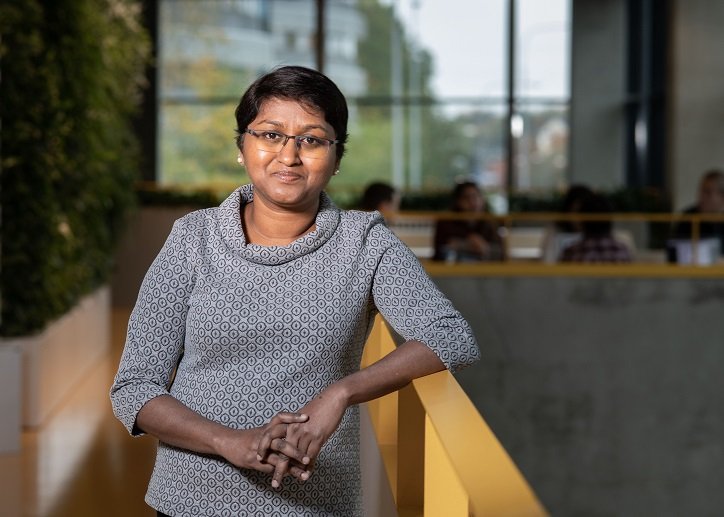Sharing of knowledge from an international project on how to manage your type-2 diabetes

In two socio-economically disadvantaged Stockholm suburbs, an urban township in South Africa and a rural area in Uganda, new methods are currently being tested to help people with type 2 diabetes take better control of their disease. The studies are part of the international research project Smart2d, which is led from Karolinska Institutet. On 17 October, a seminar day is held to share knowledge from the project.
– Almost every day of the year, a person who has type 2 diabetes or is at risk of developing the disease, need to take care of himself and try to follow the advice given by the health care. Patients need a lot of support to do that, says Meena Daivadanam, researcher at the department of Public Health Science at Karolinska Institutet and senior lecturer, department of Food Studies, Nutrition and Dietetics, Uppsala University
Meena Daivadanam is leading the international research project Smart2d (self-management approach and reciprocal learning for the prevention and management of type 2 diabetes), which will hold a seminar day at KI on October 17th to share knowledge and discuss subjects related to the project.
The aim of Smart2d is to strengthen the individual's capacity for self-management of type 2 diabetes and for prevention of the disease. The project is funded by the EU Horizon 2020 Framework Program and is a collaboration between six academic partners in five countries, with KI as coordinating institute.
Support from others is a central part of improved diabetes care
In the project, self-management programs and health programs are developed and targeted at populations in three different settings where the need of improved diabetes care is big: a rural area in Uganda, an urban township in South Africa and two socio-economically vulnerable suburbs of Stockholm in Sweden.
– We have deliberately chosen countries from three different income levels because it allows us to learn from each other. To find new solutions from our respective strengths and weaknesses in diabetes care in the different countries, says Meena Daivadanam.
Smart2d uses strategies that have been proven effective in strengthening the healthcare system in other contexts. This is so called ”task shifting”, where some tasks are moved from, for example, physicians to nurses, and to include community networks outside the formal healthcare systems in the self-management process. This can be civil offices, voluntary organizations, associations, churches and mosques. A central part is support from other people in the form of structured support sessions in patient groups or with a mentor.
The four-year project started in 2015. After the initial phase, an overall self-care program has been developed. It has then been adapted for the three different settings and is now being tested in controlled studies to investigate the effect of the programs, for example on the participants’ blood sugar levels.
Collaboration towards a common goal
On October 17th, Smart2d will host a seminar at KI for the projects’ stakeholders or anyone interested or interested in project’s research and experiences. The day focuses on the work in Sweden and is an opportunity for, for example, employees from participating health centers, organizations and municipalities to meet researchers from the project.
The day is relevant to researchers and students interested in global health and public health, especially non-communicable diseases. Smart2d also provides examples of how collaboration between different scientific disciplines contributes to a common goal.
– Not least, the day gives an opportunity to talk about challenges in implementation research, says Meena Daivadanam.
– We are working in real life, with real challenges. It is exciting but also extremely challenging. This is an opportunity to discuss that, she says.
Among the speakers and panelists during the day are representatives from the European Commission, the organization Global Alliance for Chronic Diseases (GACD), participating health care centers and citizen’s offices and the Public health agency of Sweden.
